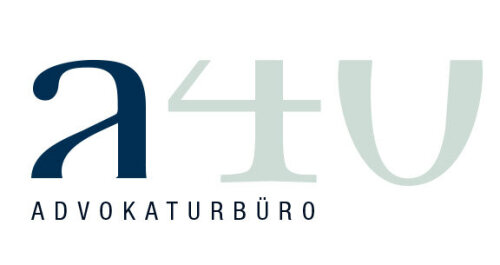Best Landlord & Tenant Lawyers in Bern
Share your needs with us, get contacted by law firms.
Free. Takes 2 min.
Free Guide to Hiring a Real Estate Lawyer
List of the best lawyers in Bern, Switzerland
About Landlord & Tenant Law in Bern, Switzerland
Landlord and tenant law in Bern, Switzerland, is primarily concerned with the principles and regulations that govern the rental of property and the relationship between landlords and tenants. This legal field covers areas such as lease agreements, duties and rights of both the landlord and tenant, eviction procedures, and deposit refund policies. Swiss law generally offers strong protections for tenants, ensuring that they are treated fairly and are able to enjoy uninterrupted use of the property.
Why You May Need a Lawyer
Engaging a lawyer is advisable in many situations, whether you are a landlord or a tenant. For instance, you may need a lawyer to draft or review your lease agreement, resolve conflicts such as rental increase disagreements, damage to property, or eviction issues. Legal help can also be crucial when you need to understand your rights and obligations as a landlord or tenant, or need assistance dealing with complex administrative procedures. A lawyer can also guide you appropriately if you're faced with discriminatory practices.
Local Laws Overview
The Swiss Code of Obligations regulates most of the elements of landlord and tenant law in Bern. This includes the requisite for written rental agreements, rights and obligations of both landlords and tenants, termination of rental relationships, and rental deposit procedures. Specifically, in Bern, laws are leaning more towards the protection of tenants. These local laws ensure, among other things, that rent increases are justified and fair and evictions are carried out legally and ethically. The law also entitles tenants to respect for their privacy and prohibits landlords from unannounced visits.
Frequently Asked Questions
How much can a landlord increase the rent in Bern?
In Bern, rental increases should be justifiable, usually tied to renovation works or increased operating costs. The Swiss Code of Obligations stipulates that rent increases should not be excessive and must be challenged within 30 days if they are deemed unfair.
What are my rights as a tenant if my landlord wants to evict me?
Facing eviction, tenants in Bern have the right to be informed as soon as possible. The eviction notice has to be issued formally, and the tenant can challenge it within 30 days. In some cases, tenants can also request an extension to their lease.
Can a landlord enter the rented premise without notice?
No, the tenant's privacy is protected by law. The landlord will have to get the tenant's permission and must schedule the visit in advance unless there is an emergency.
What happens if I damage the rented property accidentally?
Tenants are typically responsible for paying for any damages they cause. However, you will not be held liable for normal wear and tear or defects present before the start of the lease.
Can I sublet the rented apartment?
Yes, you can sublet your rented apartment. However, you must first obtain permission from your landlord, who cannot refuse without a valid reason.
Additional Resources
The Federal Office for Housing (FOH) provides useful information about landlords and tenants' rights and obligations. The Federal Statistical Office (FSO) provides key data and statistics about the housing market in Bern. Local tenants' associations or unions also provide advice and support for tenants.
Next Steps
If you need legal assistance, consider contacting a local law firm specializing in landlord and tenant law. Most offer initial consultations for free or at a low cost. If you are a tenant and believe your rights are being violated, consider reaching out to a tenants' association in Bern for advice and support. Whichever step you decide to take, make sure to document all interactions and keep copies of all relevant documents, such as rental agreements and any written correspondence with your landlord.
Lawzana helps you find the best lawyers and law firms in Bern through a curated and pre-screened list of qualified legal professionals. Our platform offers rankings and detailed profiles of attorneys and law firms, allowing you to compare based on practice areas, including Landlord & Tenant, experience, and client feedback.
Each profile includes a description of the firm's areas of practice, client reviews, team members and partners, year of establishment, spoken languages, office locations, contact information, social media presence, and any published articles or resources. Most firms on our platform speak English and are experienced in both local and international legal matters.
Get a quote from top-rated law firms in Bern, Switzerland — quickly, securely, and without unnecessary hassle.
Disclaimer:
The information provided on this page is for general informational purposes only and does not constitute legal advice. While we strive to ensure the accuracy and relevance of the content, legal information may change over time, and interpretations of the law can vary. You should always consult with a qualified legal professional for advice specific to your situation.
We disclaim all liability for actions taken or not taken based on the content of this page. If you believe any information is incorrect or outdated, please contact us, and we will review and update it where appropriate.
















